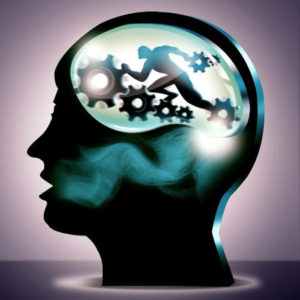Critical Thinking
Personal Development
-
 €55.00Add to cart
€55.00Add to cartThrough the “Adult Learner: Bloom’s Taxonomy – Cognitive Domain” workshop, you will discover the specifics of how the cognitive domain increases intellectual capability.
What you’ll learn
- Understand Bloom’s Taxonomy
- Explain the cognitive domain
- Explore the two cognitive domains
- Explain types of knowledge
- Identify training in the cognitive domain
-
 €55.00Add to cart
€55.00Add to cartWith our Adult Learning – Physcal Skills workshop, your participants will discover how to better navigate their physical environment. The understanding and coordination of physical skills provides an incredible benefit to everyone.
What you’ll learn
- Understand Bloom’s Taxonomy
- Explain the psychomotor domain
- Explore the different psychomotor taxonomies
- Explain ways to implement training in the psychomotor domain
- Identify psychomotor activities
-
 €55.00Add to cart
€55.00Add to cartAnger can be an incredibly damaging force, costing people their jobs, personal relationships, and even their lives when it gets out of hand. However, since everyone experiences anger, it is important to have constructive approaches to manage it effectively. The Anger Management workshop will help teach participants how to identify their anger triggers and what to do when they get angry.
What you’ll learn
- Understand anger dynamics in terms of the anger cycle and the fight and flight theory.
- Know common anger myths and their factual refutations.
- Know the helpful and unhelpful ways of dealing with anger.
- Understand the difference between objective and subjective language.
- Know tips in identifying the problem.
-
 €55.00Add to cart
€55.00Add to cartAttention Management is a useful skill that allows managers to connect with their employees on an emotional level and motivate them to focus on their work and how to reach their personal and company goals. Your participants will gain valuable insight and strategies into what it takes to be more attentive and vigilant.
What you’ll learn
- Define and understand attention management.
- Identify different types of attention.
- Create strategies for goals and SMART goals.
- Be familiar with methods that focus attention..
- Put an end to procrastination.
-
 €55.00Add to cart
€55.00Add to cartThrough this workshop you will begin to see how important it is to develop better managerial skills. By managing and looking at the way people interact and seeing things in a new light, your participants will improve on almost every aspect of their career.
Workshop Objectives:
⦁ Understand how to develop leadership qualities
⦁ Know how to delegate effectively
⦁ Choose inspirational and engaging tasks for yourself and others
⦁ Use wisdom and understanding to lead others
⦁ Identify the roles of your team -
 €54.93Add to cart
€54.93Add to cartBecome a more rational and disciplined thinker 💡
- Understand the components of critical thinking
- Utilize non-linear thinking
- Use logical thinking
- Recognize what it means to be a critical thinker
- Evaluate information using critical thinking skills
- Identify the benefits of critical thinking
- Revise perspective, when necessary
- Comprehend problem solving abilities
-
 €150.00Add to cart
€150.00Add to cartLearn how to be emotionally intelligent 🧠🎭 to lead a happier and better-balanced life.
• Define and practice self-management, self-awareness, self-regulation, self-motivation, and empathy.
• Understand, use and manage your emotions.
• Verbally communicate with others.
• Successfully communicate with others in a non-verbal manner.
• Identify the benefits of emotional intelligence.
• Relate emotional intelligence to the workplace.
• Balance optimism and pessimism.
• Effectively impact others. -
 €55.00Add to cart
€55.00Add to cartWhat does the phrase “emotional intelligence in the workplace” encompass? There are five main areas of focus that are included in most studies:
⦁Self-awareness – of emotions and self-worth, and confidence in one’s abilities.
⦁Self-regulation – of emotions, standards of honesty, and adaptability.
⦁Motivation – drive to achieve goals, commitment, and initiative.
⦁Empathy – high sense of diversity, compassion, and is driven to assist others.
⦁Social Skills – skills in conflict management, communication, and leadership.


